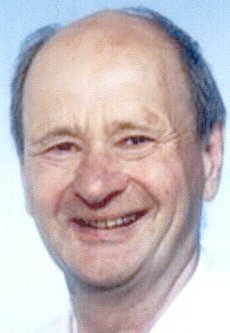Dietrich Thränhardt, born in Wroclaw, Poland, in 1941. Ph.D. from Universität Konstanz. Professor of Political Science and Dean of the Philosophical Faculty at the Universität Münster.
Dutch/Northrhine-Westphalian Fellow (1 September 2002 – 30 June 2003)
In the framework of the Dutch/Northrhine Westphalian programme, I worked together with my Dutch counterpart Anita Böcker on the comparison of multiple citizenship and naturalization in Germany and the Netherlands. The result of our study, laid down in an article entitled “Einbürgerung und Mehrstaatigkeit in Deutschland und den Niederlanden”, is that high rates of naturalisation cannot be reached unless multiple citizenship and automatic naturalisation of the second and third generations is tolerated. In most immigration as well as emigration countries, we find a tendency towards greater tolerance of dual or multiple-citizenship, particularly in children from bi-national marriages. In the mid-1990s, the Netherlands fully accepted retaining the original citizenship upon naturalisation, and currently it tolerates it in 80 percent of all cases. Germany sticks to the principle of one nationality for foreigners that want to naturalise but accepts dual nationality in 40 percent of all cases. Comparing the data, and looking into the Dutch statistics about multiple-nationality, we found that most immigrants wish to keep their old nationality and do not naturalize if they have to give it up, which means that the rather rigid German policy leads to low naturalization figures. However, we found that there are two groups who do not react in this way. One group is very eager to cut all links to their former country: the refugees who embrace the one citizenship rule. At the other extreme, we find people from the countries of the rich triad USA-EU-Japan who do not bother much about a second citizenship because they feel safe, or plan to return to their country after a number of years. Comparing the discourse in both countries, we found that citizenship has become less important in the Netherlands as a criterion for in- and exclusion of immigrants. Thus, a certain devaluation of citizenship can be observed in the Netherlands, not only in discourse but also in actual immigration policies, where new restrictions on family reunion are directed not only towards denizens but also towards citizens.
In addition to this study on naturalisation and multiple-citizenship, we wrote a series of articles on immigration and immigrant integration in Germany and the Netherlands, which we intend to compile in a comparative book in the next months (see Böcker’s report).
The DNRW-programme idea of close cooperation of a Dutch and a German researcher has worked out well for us. It was ideal to be able to cooperate and to develop interpretations step-by-step. Moreover, the easy contact with other researchers at NIAS, migration as well as other specialists, was an inspiring factor. Together with other fellows, we organised several conferences, including a seminar for Ph.D. students from different institutes in Germany and the Netherlands, which we intend to make an annual event. Evidently, the excellent atmosphere at NIAS helps a lot to concentrate on the work, and to keep the brain free of routine problems.
